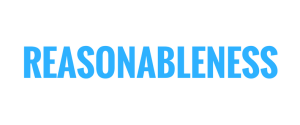
It takes 2 days to deliver the book. So Amazon lets me start reading the Kindle version immediately & avoid the wait.
Tiny steps all along the journey to ace the customer experience ?

It takes 2 days to deliver the book. So Amazon lets me start reading the Kindle version immediately & avoid the wait.
Tiny steps all along the journey to ace the customer experience ?

Here is a customer experience story for you. Today, I had given my car for servicing at my regular service station. As usual, there was a delay when I went to pick it up at the scheduled time. The car was still being washed. Post the wait & settling the bill, I finally got the car. I was keen to get home & avoid the evening traffic snarls. To my surprise though, I saw that the car was still dirty at many places.
On further inspection, I discovered it had not been washed at all. Not only was I charged for it, but I was also made to wait long for the wash. Obviously, I was furious and frustrated. I made a complaint to the managers. And I was on my way out after agreeing for a wash the next time there.
That’s it? Nothing more? Why didn’t I make a bigger issue of it? Why settle so quickly?
Beware the soul sucking force of reasonableness.
– Chip & Dan Heath
Inspite of the service station being clearly at fault, the reason I did not make a mountain of the issue was probably what had happened at the service station earlier in the day. Several acts that defied business reasonableness.
Decisions to the do the above acts could’ve all faced the challenge of corporate reasonableness. It is reasonable to save money by not giving free packaged water or beverages? Smiling, making customer feel comfortable & well attended to – this is a car service station, not a hotel for god’s sake!
The reasonableness defying acts were them building up their equity by take the initiative to give, give & give (the job jab jab in Gary Vaynerchuck’s terms). They cashed in their equity (the right hook) when they asked me to excuse them for their obvious mistake.
Today, I came across two seperate reputed opinions about corporate culture. Unfortunately, both are negative.
The first one from a Bridgewater Associates (considered the most successful hedge fund in the world) manager:
In general hierarchical structures, you don’t tell people what you actually think.
You’re always managing other people’s perceptions of you and what they think of you, and trying to butter people up above, trying to make sure they don’t think anything is going wrong, that you have all the answers.
Radical transparency is designed to solve for a deadly sin of work life: office politics. In too many places, what happens in the meeting doesn’t matter nearly as much as secret alliances and conversations after the meeting.
And the second one (paraphrased) from Malcom Gladwell:
When I think back about my time in a large organization, the thing that was most frustrating to me was the extent to which people over time in organizations, put the needs & desires of the people on the inside ahead of the needs & desires of the people they are serving.
Sometimes people get so immersed in their envronment, that the people you are supposed to be serving sort of falls away. And you just think about what would make your life better.
One way to avoid this is to keep reminding yourself & the people around you the point of your organization & who you are serving.

Incidentally, both of these were heard in the TED original podcast WorkLife with Adam Grant. The episode How to Love Criticism delves into how Ray Dalio addresses these in Bridgewater Associates with a corporate culture based on radical transparency & constantly getting better (kaizen).

(Photo courtesy CNNMoney)
The news world is abuzz with news & conversations about the Jeff Bezos buying The Washington Post. Here are a few points in the announcements that caught my attention:
It will indeed be interesting to see how Bezos will try & innovate The Post out of its financial misery. What kind of innovations will we get to see in the world of news publishing? After the medium, is it now the turn of the content to play a role in Bezos’ & Amazon’s vision?